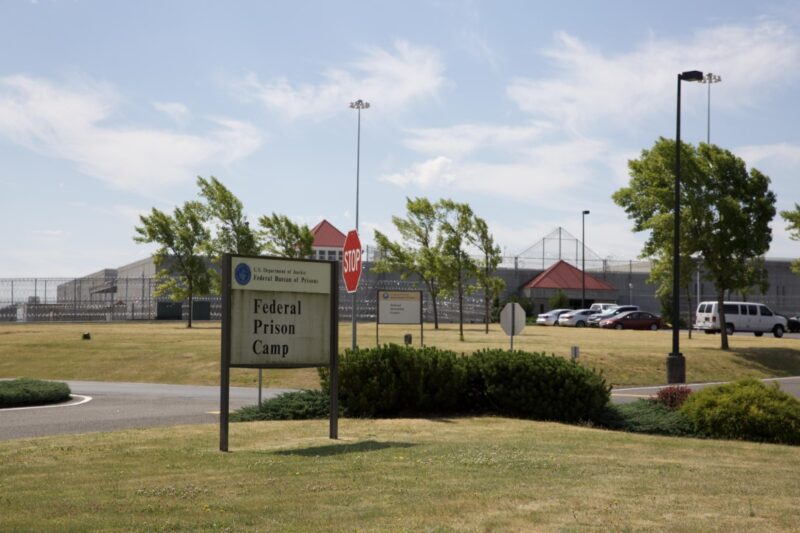Rebuilding your life after a stint in a federal prison camp can feel like standing at the base of a mountain, daunted by the ascent yet eager to reach the summit. The journey ahead, though fraught with challenges, is also ripe with opportunity.
Imagine stepping into a world that has changed in ways you may not yet comprehend—technology, relationships, and self-identity may all feel foreign. Each day offers a fresh canvas, a chance to redefine who you are and what you want to become.
Navigating the complexities of reintegration requires patience, resilience, and a strategic approach, but it’s entirely possible. With the right mindset and resources, you can transform this chapter of your life into a story of redemption, growth, and newfound purpose.
Join us as we explore practical steps and invaluable insights that can help guide you in reclaiming your place in society.
A New Chapter Begins
Emerging from the confines of a federal prison camp is more than just a physical transition; it is the dawn of a transformative journey, filled with both challenges and opportunities. As you step into the world outside, it’s essential to recognize that rebuilding your life involves more than just reintegrating into society; it encompasses emotional healing, re-establishing relationships, and redefining your goals.
This new chapter calls for resilience, courage, and an unwavering commitment to personal growth. So much has changed during your time away, and while the journey ahead may seem daunting, it also brims with potential.
With each decision you make, you carve out a path toward healing and fulfillment, allowing a brighter future to unfold. Embrace the uncertainties, harness your inner strength, and remember: today marks not just an end, but the beginning of an extraordinary adventure.

Understanding the Challenges Ahead
Understanding the challenges ahead after serving time in a federal prison camp can feel like standing at the edge of a daunting precipice, peering into an uncertain future. The road to reintegration is often littered with obstacles, from grappling with emotional scars to navigating a social landscape that may feel alien and unwelcoming.
Individuals coming out of prison face the harsh realities of finding stable employment, rebuilding fractured relationships, and adjusting to life outside the controlled environment they’ve known for so long. The stigma attached to a criminal record can weigh heavily, affecting self-esteem and complicating even the simplest tasks, such as securing housing or gaining trust from loved ones.
Yet, amid this labyrinth of challenges lies the possibility for renewal; each step forward, no matter how small, can pave the way to a brighter, more hopeful tomorrow. Embracing this journey requires not only resilience but also a willingness to seek support, learn from setbacks, and forge a new identity beyond the confines of one’s past.
Emotional Healing ─ Coping with the Transition
Emotional healing after a transition from a federal prison camp is a profound journey, marked by both challenges and breakthroughs. As you step back into a world that feels foreign, the weight of past experiences may cling tenaciously, evoking feelings of anxiety, shame, and isolation.
Yet, within this struggle lies the potential for transformation; it’s a chance to reassemble your identity piece by piece. Engage with supportive communities—friends, family, or organizations that understand the unique pressures of reintegration.
Seek therapy or counseling to navigate the complex emotions that arise, creating a safe space to express your fears and hopes. Remember, healing is not linear; it ebbs and flows, often surprising you with moments of clarity amidst the chaos.
Embrace each day as it comes, allowing yourself to grieve the past while also planting seeds for a hopeful future. Recognize that vulnerability in sharing your journey can foster deeper connections, gradually leading you toward a renewed sense of self that honors both your history and your aspirations.

Conclusion
Rebuilding your life after serving time in a federal prison camp can seem daunting, but it is ultimately a journey of resilience and renewal. For a black man emerging from this experience, the path may come with unique challenges, yet it also holds the potential for profound personal growth.
By focusing on developing new skills, establishing a strong support network, and remaining committed to personal goals, individuals can transform their lives into a positive new chapter.
Embracing the lessons learned during incarceration and seeking out resources dedicated to reintegration can lead to fulfilling opportunities that not only benefit the individual but also strengthen their communities. With determination and perseverance, the dream of a brighter future is entirely within reach.


